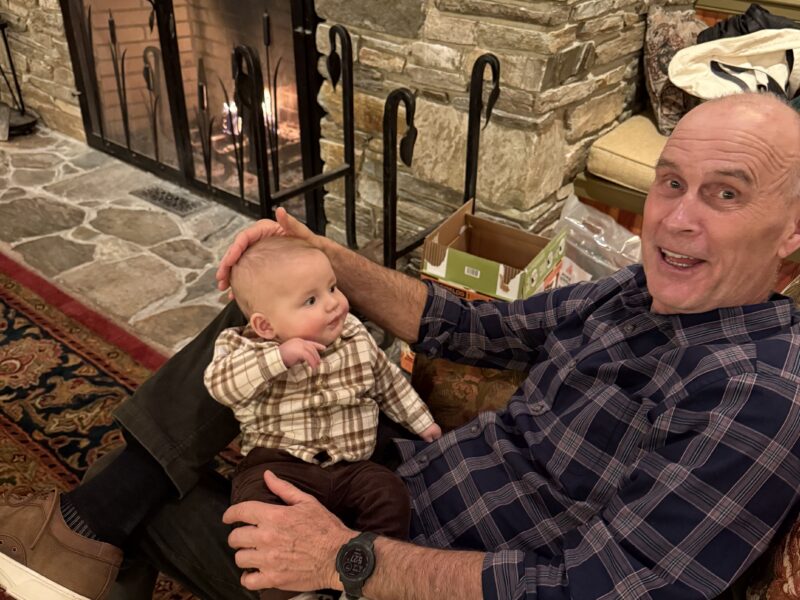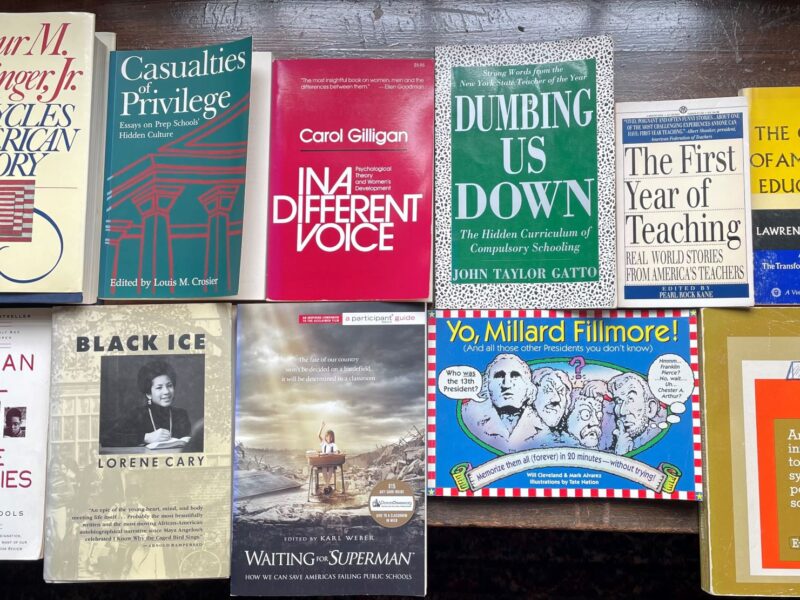Just got back from Quebec City where 23 of us – ages 2 to 92 – celebrated the Holidays with a family reunion at the world famous Chateau Frontenac. As a family, we try to gather the extended clan every few years. Usually we go warm – the last few gatherings were in Mexico – but this time we decided to go northward, to that place characterized by The Band as “the land of snow.”
During our time together, we always have a “check-in” with the full group assembled in one room. (Although we rented a hotel conference room this time around, we once commandeered a bar in Playa del Carmen early in the day, thereby giving new meaning to the idea of Happy Hour.) Each person speaks for 2 minutes – yes, we have a timer – reviewing the past year and setting goals for the next. (Uhm… did I mention that we are Hyde people?) We then open it up for reactions. The whole affair takes about 2 hours. Follow-up 1-on-1 conversations then occur throughout the trip.
To provide a demographic sense of our assemblage, our “Quebec 23” cut across four age groupings:
- #1 = 1 Greatest Generation patriarch (AKA mandator of said check-in!);
- #2 = 7 Baby-Boomers (3 = children of #1);
- #3 = 14 Millennials (10 = children of Group #2, 1 spouse, and 3 significant others. (Note: The history with S.O.s at this thing has consistently followed a trajectory of nervousness at the start — on the part of both the S.O. and his/her partner — and a combination of refreshed/relieved at the end. As for this go-round, all relationships remain in tact as of this writing.)
- #4 = 1 child of group #3 (AKA #1’s great-grandchild who did not want for attention on this trip).
While each person receives the group’s full attention, there is something extra special about Group #3. Ranging in age from early 20s to late 30s, these are the ones in our number striving to make their way in the world. We learn of their triumphs, their setbacks. We cheer their hopes, their dreams. We empathize with their fears and doubts. Although their career paths vary widely – e.g., accounting, music, tech, finance, freelance writing, acting, sales, executive recruiting, hospitality – they all share common goals of success and fulfillment, not to mention genuine affection and respect for each other.
Listening to their stories, one consistent pattern presented itself: College is the appetizer… Life is the main course.
As a lifelong educator, I confess that I have resigned myself to the discouraging reality that American schools, whether weak or strong, remain trapped in a mindset where they continue to place primary emphasis on the “college thing” and settle for squeezing in the occasional teachable moment for what comes next. Had you been a fly on the wall in our Quebec City conference room, you would have seen that “what comes next” is where the real game is played!
Each – I mean: Every. Single. One – of these 14 individuals is striving to develop two common qualities, each with a part a) and b):
- The capacity to a) set goals… b) then hustle and persevere.
- The ability to a) stave off doubt… b) then rise after falling.
That’s it. End of story.
So, how do we ensure that our homes and schools both recognize and develop these capacities? I floated that very question by my colleagues on the Hyde faculty and gave them 24 hours to get back to me. Given that most of those who answered my call are working through this parenting thing themselves, maybe there is something here for all of us. In no particular order, here are 20 tips to consider:
- Remember that authentic confidence comes from doing difficult things.
- Chores are a good thing. Excusing your kids from doing them is a bad thing.
- When your child reaches the age of 18, Get Fired(!)… As the manager of his/her life. (You just may get rehired as a consultant.)
- The capacity to manage anxieties as an adult takes practice… as a child.
- When the common anxieties of youth – e.g., tough teachers, teasing peers, bad food in the lunch room, etc. – visit your child, consider stepping aside and letting them take the wheel.
- To help you do #5, consider adopting a mantra: “Is this my issue?” Then try erring on the side of “No.”
- When talking with your children, ask more questions… make fewer statements.
- If your child has been diagnosed with a learning disability, remember that his/her attitude toward his/her learning will ultimately matter more than the actual diagnosis.
- Praise effort regardless of outcome. Avoid praising outcomes that are not the result of genuine effort.
- When your children are struggling or failing, avoid fixing. But do tell them you believe in them. Better to say, “Let me know if I can help” than to ask, “Do you want my help?” (Subtle, but important, difference)
- Sometimes make life tougher on your kids than it needs to be. This will help them learn the critical skill of how to “suck it up!”
- The president of a prestigious liberal arts college once described today’s typical incoming college students as “ethically unformed with anxieties that have been sanctified.” Have you sanctified your child’s anxieties?
- A parent’s job is to prepare a child for a purposeful life. His or her education should support that goal. That education must include challenging life experiences.
- Purpose is not about behavior, pedigree, or resume. It is the culmination of one’s character, commitments, and calling to express one’s deepest gifts and principles.
- Encourage your children to perceive their struggles and failures not as weaknesses but as steps to success. They are not signs of shame. They are signs of strength.
- Down deep, if you really believe your child will succeed in life, then let go. S/he will do fine. However, if you harbor significant doubts, then begin a program to remove them from yourself, because children generally do not succeed in life without their parents’ genuine belief in their best.
- A mom wrote: I believe many of my best qualities have come from persevering and then learning through tough times. Ask yourself, Am I erring on the side of stepping back to let my child persevere and learn, or am I trying to pave the way to minimize his/her challenges?
- Another mom: My kids struggled in college in many ways. We stepped back and let them figure it out as much as we could. I believe the perseverance they exhibit today is the result of that and the reason they tend to pick themselves up and follow their dreams.
- Grit is forged in tough times and not being rescued during those times.
- “The world is not your mother.” – Indira Gandhi
Here’s to productive parenting and teaching in 2020!
Onward, Malcolm

